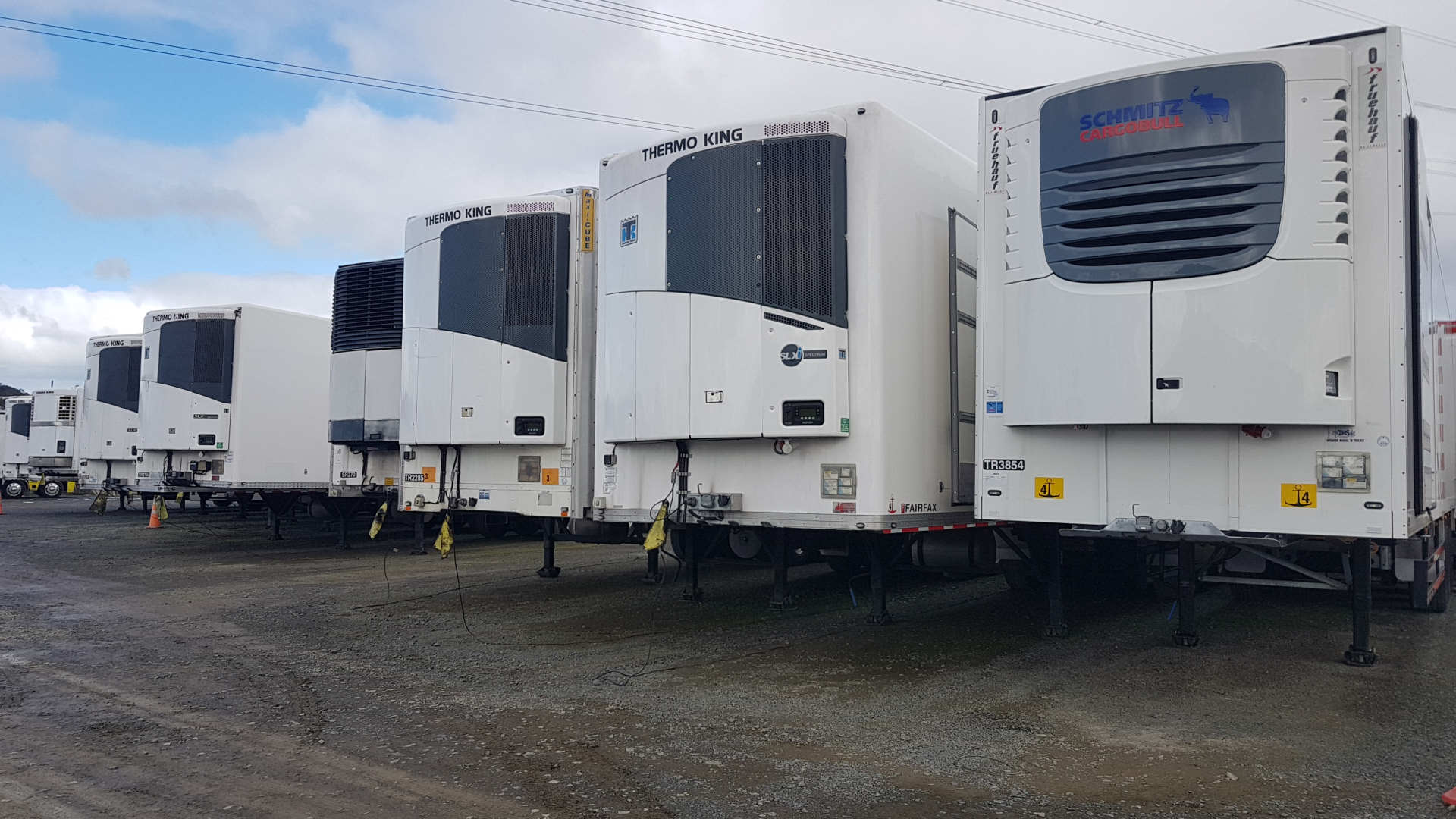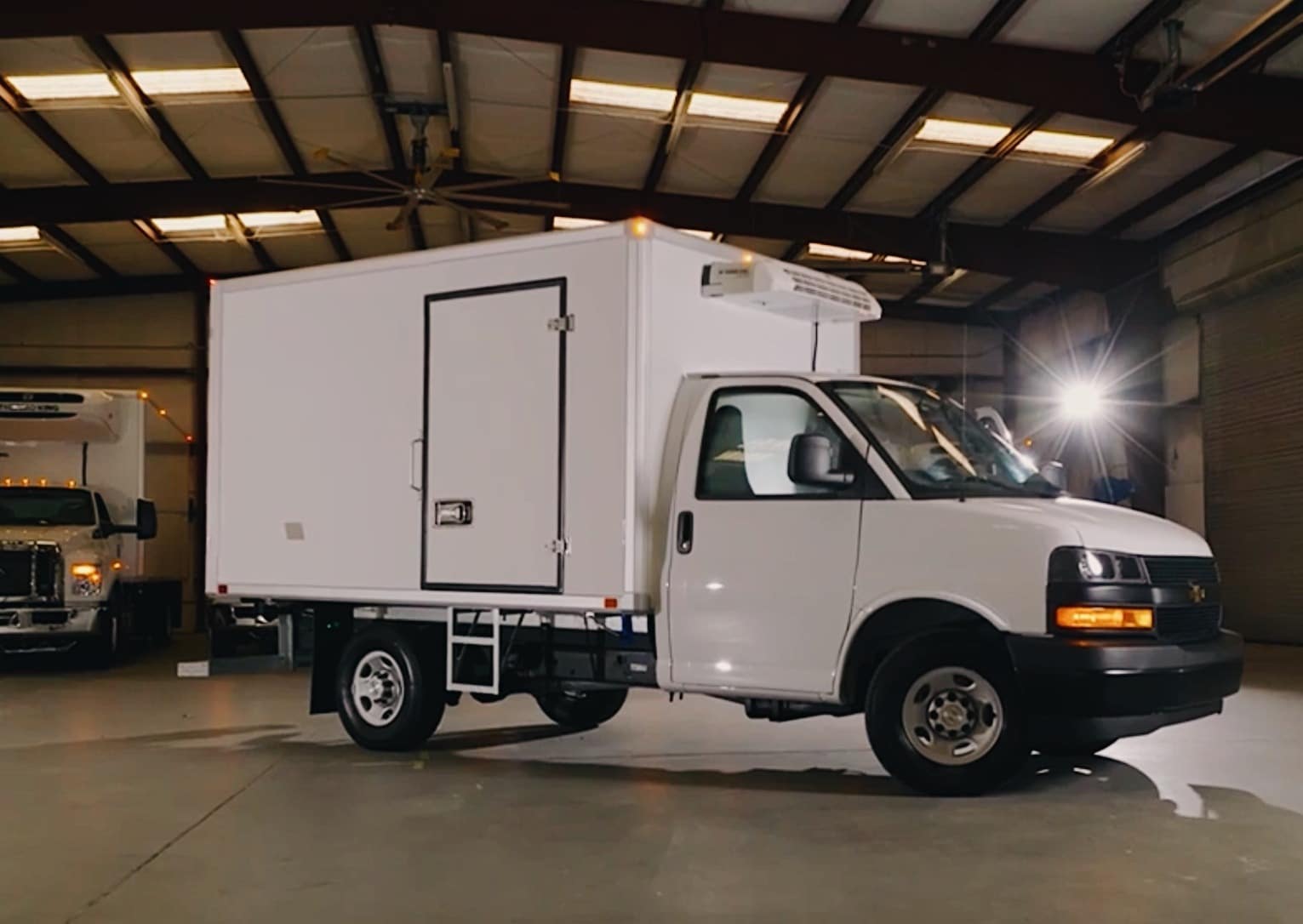Refrigerated Transportation Thermo King: Maintaining Item Fresh in Transit
Refrigerated Transportation Thermo King: Maintaining Item Fresh in Transit
Blog Article
Leading Innovations in Transportation Refrigeration: Enhancing Performance and Security
The landscape of transportation refrigeration is undertaking considerable makeover, driven by developments intended at boosting both effectiveness and safety and security. As these developments proceed to develop, it is important to discover their effects on operational methods and governing compliance, triggering a more detailed evaluation of exactly how they improve the future of transport refrigeration.
Smart Temperature Level Keeping Track Of Equipments
In the world of transport refrigeration, smart temperature surveillance systems have emerged as an important technology for making certain the honesty of temperature-sensitive goods. These sophisticated systems take advantage of Net of Points (IoT) innovation to offer real-time information on temperature level fluctuations, enabling drivers to maintain optimal conditions throughout the supply chain. By constantly tracking the temperature of cooled containers and cars, firms can promptly recognize inconsistencies that might jeopardize product quality.

Moreover, clever surveillance systems usually integrate automated notifies and alerts, allowing stakeholders to react without delay to any potential problems. This aggressive approach not just decreases the danger of perishing however additionally enhances compliance with regulative standards regulating food safety and security and pharmaceutical transport.
The combination of information analytics within these systems additionally assists in anticipating upkeep, helping drivers to predict prospective tools failures before they happen. This capacity reduces downtime and maximizes functional efficiency, ultimately causing set you back financial savings.
Eco-Friendly Refrigerants
Smart temperature level tracking systems play a crucial function in maintaining item high quality, yet the efficiency of transportation refrigeration likewise hinges on the selection of cooling agents made use of. As environmental worries climb, the shift in the direction of environment-friendly refrigerants has come to be critical. Standard cooling agents, such as hydrofluorocarbons (HFCs), are notorious for their high International Warming Potential (GWP), contributing considerably to environment change. In comparison, arising options like hydrocarbon-based cooling agents and hydrofluoroolefins (HFOs) present lower GWP choices, supplying both efficiency and sustainability.
These eco-friendly refrigerants not only lessen environmental effect however likewise straighten with international laws aimed at eliminating unsafe substances. Their adoption can lead to enhanced energy efficiency, inevitably lowering operating expense for transportation refrigeration systems. The usage of all-natural cooling agents, such as ammonia and carbon dioxide, has actually obtained grip due to their exceptional thermodynamic buildings and reduced ecological impact.
Purchasing environment-friendly refrigerants is not merely a regulative compliance action; it stands for a calculated decision that boosts brand name reputation and fosters client loyalty. refrigerated transportation thermo king. By focusing on sustainable techniques, firms can contribute to a greener future while ensuring the stability of carried products
Advanced Insulation Materials
Making use of sophisticated insulation products is essential for enhancing transport refrigeration systems, as they significantly boost energy performance and preserve constant temperature control. Conventional insulation approaches commonly drop short in preventing thermal transfer, bring about enhanced power intake and varying temperature levels within cooled areas.
Emerging products such as vacuum shielded panels (VIPs) and aerogels provide premium thermal resistance, enabling for thinner accounts without compromising efficiency. VIPs, as an example, use a vacuum cleaner layer to reduce convective and conductive heat transfer, making them excellent for space-constrained applications. Aerogels, understood for their porous and light-weight framework, give outstanding insulation while significantly minimizing total system weight.
Moreover, integrating stage adjustment materials (PCMs) right into insulation systems can better support temperature levels during transit. These materials take in and release thermal energy, properly buffering against exterior temperature level variations.
The integration of these sophisticated insulation materials not just reduces the operational costs connected with power intake yet additionally extends the rack life of temperature-sensitive items. As the transportation refrigeration industry remains to develop, the fostering of cutting-edge insulation modern technologies will certainly be critical in improving both effectiveness and security in cooled transportation.
Automated Course Optimization
The efficiency of transportation refrigeration systems is substantially boosted through automated path optimization, which leverages sophisticated algorithms and real-time data to figure out the most reliable paths for distribution. By evaluating numerous variables such as website traffic patterns, climate condition, and distribution windows, these systems can significantly minimize traveling time and gas usage.
Automated route optimization minimizes human mistake and subjective decision-making, which can result in inefficiencies. This innovation allows fleet managers to allocate resources better, ensuring that cooled goods preserve their called for temperature level throughout the trip. By optimizing paths, companies can also improve consumer fulfillment through prompt distributions.
Moreover, automated systems can adjust to unanticipated circumstances, such as roadway closures or sudden website traffic spikes, allowing visit their website for dynamic rerouting. This flexibility not just safeguards the integrity of temperature-sensitive products however likewise adds to general operational effectiveness.
Carrying out automated course optimization can result in substantial price financial savings while lowering the carbon impact associated with transport. As services increasingly focus on sustainability, this technology sticks out as a critical element in modern transportation refrigeration, lining up operational objectives with ecological obligation. Inevitably, automated route optimization stands for a considerable innovation in the pursuit for effectiveness and safety in transportation refrigeration.

Real-Time Data Analytics
Automated path optimization significantly take advantage of the assimilation of real-time information analytics, which provides critical understandings right into the efficiency of transportation refrigeration systems. By utilizing real-time information, transportation drivers can check temperature changes and equipment performance, making certain that perishable items are preserved within required specifications throughout transportation. This proactive approach not just boosts the high quality of the transported items however likewise minimizes the danger read this article of spoilage and loss.

Along with improving effectiveness, real-time analytics improves safety by guaranteeing conformity with governing criteria for temperature control. This not just shields public health yet additionally strengthens a business's credibility - thermo king transport refrigeration. As the transportation refrigeration market advances, the assimilation of real-time information analytics becomes a cornerstone for driving advancement, sustainability, and functional excellence
Conclusion
In verdict, the innovations in transport refrigeration considerably enhance both efficiency and security within the industry. Smart temperature level monitoring systems and real-time data analytics supply essential oversight, while environmentally friendly refrigerants and advanced insulation products add to sustainability and power efficiency. Additionally, automated course optimization formulas not only lower traveling time but also decrease ecological effect. Jointly, these advancements represent an essential evolution in transportation refrigeration, guaranteeing compliance with regulatory criteria and advertising a greener future.
The landscape of transport refrigeration is going through significant makeover, driven by innovations aimed at boosting both efficiency and safety.Smart temperature monitoring systems play an important role in maintaining product top quality, yet the effectiveness of transportation refrigeration likewise pivots on the selection of refrigerants made use of. Their adoption can lead to improved energy effectiveness, ultimately reducing operating expenses for transportation refrigeration systems. Ultimately, automated course optimization stands for a considerable advancement in the quest for effectiveness and safety in transport refrigeration.
In final thought, the developments in transport refrigeration dramatically boost both effectiveness and security within the industry.
Report this page